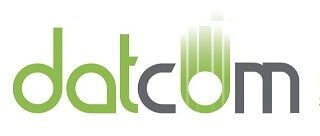The more people use technology, the more they have to deal with the negative aspects of doing so. One of the most prevalent problems users experience today is cybercrime that leads to identity theft. What can you do to prevent this from happening to you?
How You Can Work with Identity Thief
There are numerous ways that a potential identity thief can gain access to the information they want. Since businesses often collect a lot of data, would-be identity thieves have both more data to steal, and typically more access points in which to get into the network. Additionally, a lot of companies may say that they have hackers as a top-of-mind threat, but since a comprehensive cybersecurity strategy requires that everyone within an organization buy into it, there are usually some holes left open though a lack of employee diligence; or, worse yet, blatant employee indifference. Since throwing employee regulations out there won’t stop someone who is hell-bent on getting the information, knowing how to protect your business becomes critical.
One-way hackers can get sensitive information is though the trash. You’ve seen it in movies and on television: organizations go through the mail and recreate shredded documents to get sensitive information. That’s why doing what you can to create a paperless office can go a long way toward protecting against the dumpster-diving thieves of the world.
Your Responsibilities if You Allow Your Clients’ Identities to Be Stolen
No matter how diligent you are about your data protection, there can be a time where your network is breached, and your clients’ sensitive information could be stolen. To help your clients out, you’ll want to provide them with the following information:
- Notified Banks or Creditors – If it was financial information that was stolen it is their responsibility to notify their financial institution and see what services they can offer to help rectify the situation. Most banks have been proactive in the quest to limit identity theft and can walk your clients through what they need to know to ensure that any personal information hackers make off with will be of little consequence. If you do this promptly they can report this breach and ensure that they will be protected. Unauthorized charges within two days of any complaint limits individual liability to a mere $50; a huge savings in some identity theft cases.
- Credit Reports – Any client that has his/her data potentially stolen has to monitor their credit reports. Setting fraud alerts will help automate this process, although they should still constantly check for warning signs of fraud. If reports come back conclusive for identity theft, considering a credit freeze until everything returns to normal may be a good option.
- Theft Reports – In the U.S. the Federal Trade Commission (FTC) only has the resources to follow up on larger-scale fraud cases, but they will monitor identity theft cases to identify suspicious patterns that suggest the involvement of organizational wire fraud. The FTC’s website has a form that will file a complaint. Once that is done, it may be best to secure a police report to dot all the i’s and cross all the t’s. This report needs to be sent to all creditors and credit reporting agencies to ensure that you aren’t on the hook for malicious or unauthorized access.
- Lock It Down – Immediately updating passwords is a great way to lock down your accounts after a potential breach. Furthermore, not only should you report any false use of your Social Security Number, you should also ensure that no additional accounts have been opened in your name.
Identity theft is serious business. DatCom, LLC’s IT experts can do their best to keep unwanted entities out of your network. For more information about cyber security and data theft, call us today at (903) 320-5330.


